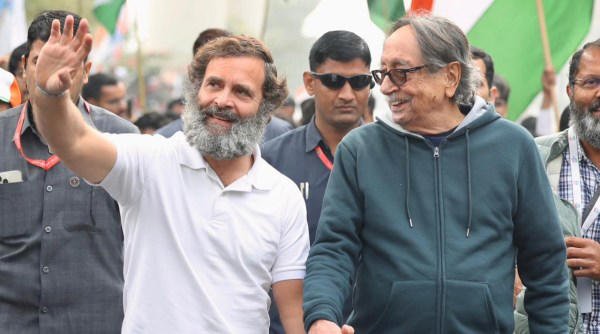Former Research and Analysis Wing (RAW) chief A.S. Dulat has publicly discussed the controversial decision to allow Indian Airlines flight IC 814 to depart Amritsar in December 1999. The flight, which was hijacked and eventually flown to Kandahar, Afghanistan, became a critical incident in India’s counter-terrorism history. Dulat’s comments shed new light on the internal deliberations and decisions that shaped the response to the hijacking.
Background of the Hijacking
The hijacking of IC 814 was a harrowing episode that unfolded during the height of the Kargil conflict between India and Pakistan. On December 24, 1999, the flight, en route from Kathmandu to Delhi, was taken over by terrorists associated with the Pakistan-based militant group Jaish-e-Mohammed. The hijackers, armed and dangerous, demanded the release of several militants held in Indian prisons.
The crisis took a dramatic turn when the aircraft, carrying 155 passengers, was diverted to Amritsar. The situation rapidly escalated, with the Indian government faced with a difficult dilemma: negotiate with the hijackers or risk the lives of the hostages.
The Decision at Amritsar
In his recent remarks, A.S. Dulat, who was at the helm of RAW during the incident, reflected on the decision to allow the aircraft to leave Amritsar. According to Dulat, there were serious considerations and intense debates among the security and intelligence agencies regarding the best course of action.
Dulat revealed that among the options discussed were attempts to “puncture the aircraft’s tyres” and “block it with a bowser” (a fuel tanker) to prevent its departure. These measures were considered as potential ways to thwart the hijackers’ plans without resorting to an outright military intervention that could endanger the lives of the passengers.
However, these options were eventually deemed impractical due to various logistical and security concerns. The decision to allow the aircraft to take off was influenced by the fear of a potential disaster if the situation was handled improperly. The authorities were concerned that any aggressive move could provoke the hijackers and put the lives of the hostages at even greater risk.
Controversial Decision and Aftermath
The decision to permit IC 814 to leave Amritsar has been widely criticized and remains a subject of intense debate. The flight was eventually taken to Kandahar, where the Indian government, under significant international and domestic pressure, agreed to release three militants in exchange for the safe return of the hostages.
Dulat’s comments provide a rare glimpse into the complex and fraught decision-making process that characterized the response to the hijacking. The former RAW chief’s acknowledgment of the decision as a “mistake” reflects the heavy burden of responsibility carried by those involved in such high-stakes situations.
The decision to release the militants, while ultimately resulting in the safe return of the hostages, was met with severe criticism from various quarters. Critics argued that the government’s response was a capitulation to terrorism and set a dangerous precedent for future hostage situations.
Reflections and Implications
Dulat’s reflections underscore the challenging nature of counter-terrorism operations and the difficult choices faced by security and intelligence agencies. The incident highlights the inherent tension between the immediate need to protect lives and the long-term implications of conceding to terrorist demands.
The hijacking of IC 814 had significant repercussions for India’s counter-terrorism policies and international relations. It led to increased scrutiny of India’s response to terrorism and spurred changes in security protocols and crisis management strategies.
In the years following the incident, there have been numerous debates and analyses regarding the handling of the hijacking, with lessons learned contributing to the evolution of India’s counter-terrorism approach.
Moving Forward
As India continues to confront and address the challenges posed by terrorism and hijacking, the reflections of key figures like A.S. Dulat offer valuable insights into the complexities of crisis management. The IC 814 episode serves as a reminder of the high-stakes nature of counter-terrorism operations and the need for careful consideration of all available options in such critical situations.
Dulat’s candid acknowledgment of the decisions made during the crisis provides an important perspective on the challenges faced by security agencies and the difficult balance between immediate responses and long-term implications. The lessons from IC 814 continue to inform India’s approach to counter-terrorism and crisis management in an evolving and increasingly complex global landscape.

